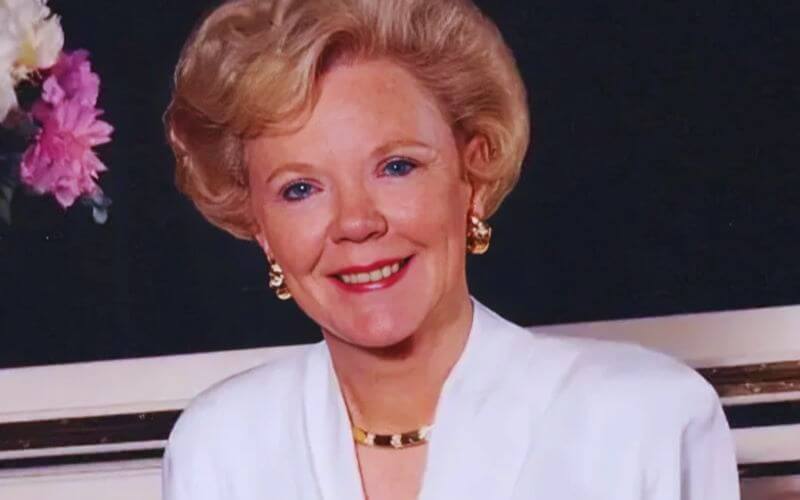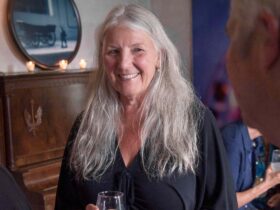When you hear the name Marilyn Kroc Barg, you might think of her father, Ray Kroc, the man who turned McDonald’s into a global empire. Yet Marilyn’s story reaches far beyond that association. She was a woman who combined privilege with purpose, carving a meaningful path through philanthropy, compassion, and quiet leadership.
This in-depth exploration of Marilyn Kroc Barg reveals how she lived, loved, and gave back to society—offering a model of grace, humility, and social responsibility. Her story is not about fame, but about impact.
Early Life and Family Background
Marilyn Kroc Barg was born on October 15, 1924, in Chicago, Illinois, as the only child of Ray Kroc and Ethel Janet Fleming. Her childhood was shaped by both modest beginnings and the entrepreneurial spirit that would later define her family’s success.
Growing up during a transformative era in American history, Marilyn experienced both the simplicity of early family life and the rapid growth of her father’s business ambitions. Though her father would eventually become synonymous with the McDonald’s brand, Marilyn’s formative years were grounded in Midwestern values of hard work, discretion, and community.
Her mother, Ethel, played a key role in nurturing Marilyn’s sense of empathy and kindness—traits that later became central to her identity. This early balance of ambition and compassion would guide her throughout her life.
Personal Life & Marriages
Marilyn’s personal life was marked by two marriages that reflected different stages of her growth and worldview.
In 1949, she married Sylvester Nordly Nelson, a World War II veteran. The marriage was short-lived, ending in divorce, but it provided Marilyn with valuable lessons about independence and self-reliance.
Years later, in 1960, she married Walter James Barg, who shared her interests in philanthropy and community engagement. This second marriage brought stability and partnership to her life. Together, they focused on meaningful causes rather than public recognition.
Marilyn did not have children, dedicating her time instead to charitable work, family connections, and community service. Despite being part of one of America’s most famous business families, she preferred a quieter, more private existence—away from the spotlight but rich with purpose.
Professional Interests & Philanthropy
From Family Legacy to Personal Mission
Though Marilyn Kroc Barg was born into privilege, she chose not to live in the shadow of her father’s corporate empire. Instead, she transformed her resources and access into avenues for giving back. Her approach to philanthropy was genuine—motivated not by publicity but by empathy.
Areas of Focus
Marilyn’s philanthropic efforts centered around healthcare, child welfare, and community well-being. Her own struggle with diabetes profoundly influenced her charitable interests. She became a quiet advocate for medical support programs that helped families with sick children.
Many who knew Marilyn recall her generosity toward hospitals and local initiatives that assisted children undergoing treatment. These early efforts echoed what would later evolve into large-scale charitable movements such as the Ronald McDonald House Charities—programs providing comfort and shelter to families with hospitalized children.
Beyond health causes, Marilyn was also passionate about the arts, animal welfare, and equestrian pursuits, often supporting community events that encouraged education, creativity, and compassion.
Civic Engagement
Marilyn Kroc Barg participated in community boards and charitable events, often lending her name and influence to raise awareness for causes she believed in. Her involvement was less about prestige and more about tangible outcomes.
Her approach to service was rooted in her belief that “to whom much is given, much is expected.” This sense of moral stewardship defined her professional and personal endeavors.
Health Challenges & Untimely Passing
Despite her optimism and generosity, Marilyn Kroc Barg faced significant health challenges throughout her life. She battled diabetes, a condition that would ultimately claim her life.
On September 11, 1973, at just 48 years old, Marilyn passed away in Arlington Heights, Illinois. Her death came as a shock to those who admired her strength, compassion, and quiet courage.
Her struggle with diabetes not only shaped her philanthropic focus but also served as a lasting reminder of the importance of health awareness—a cause she would undoubtedly have continued to champion had she lived longer.
Legacy and Influence
The legacy of Marilyn Kroc Barg is subtle yet profound. Though she was not a public celebrity, her impact resonates through the lives she touched and the values she embodied.
A Humanitarian Spirit
Marilyn’s charitable spirit continues to inspire many within the philanthropic community. Her belief that wealth carries responsibility remains a guiding principle for modern social entrepreneurs and nonprofit leaders.
A Role Model for Women
In a time when women were often confined to domestic roles, Marilyn Kroc Barg represented quiet empowerment. She used her position not for personal fame, but to uplift others. Her life demonstrates that influence does not always need to be loud to be meaningful.
Beyond the McDonald’s Legacy
While her father built a fast-food empire, Marilyn helped build something less tangible but equally enduring—a culture of giving. Her humanitarian values complemented Ray Kroc’s entrepreneurial drive, balancing the family’s legacy with heart and humanity.
Why Marilyn Kroc Barg Matters Today
The story of Marilyn Kroc Barg remains deeply relevant in today’s world.
- Purpose over privilege: She reminds us that true fulfillment comes from service, not status.
- Health awareness: Her battle with diabetes emphasizes the ongoing importance of preventive care and medical research.
- Women’s empowerment: Her example shows how women can lead and give in ways that transcend traditional expectations.
- Philanthropic leadership: Marilyn’s life is proof that genuine generosity has a ripple effect far beyond one’s lifetime.
In many ways, she embodied the modern ideal of “compassionate leadership” long before the term became popular.
Conclusion
Marilyn Kroc Barg may not be a household name, but her life tells an extraordinary story of kindness, resilience, and integrity. As the daughter of Ray Kroc, she could have chosen a life of comfort and anonymity. Instead, she chose a life of service—helping others, supporting healthcare initiatives, and inspiring quiet acts of generosity.
Her story reminds us that legacies are not defined by headlines but by hearts touched and lives changed. The name Marilyn Kroc Barg stands for humility in privilege, grace in adversity, and purpose in action.
If you found inspiration in Marilyn’s story, take a moment to reflect on how you can bring compassion into your own world. Whether through volunteering, donating, or simply being kind, every act of service keeps her spirit alive.
FAQ
Q1: Who was Marilyn Kroc Barg?
A: Marilyn Kroc Barg was the only child of Ray Kroc, the founder of McDonald’s Corporation. Born in 1924, she dedicated her life to philanthropy and humanitarian work.
Q2: What was Marilyn Kroc Barg known for?
A: She was known for her charitable contributions, particularly in supporting healthcare programs and families of children undergoing medical treatment.
Q3: Did Marilyn Kroc Barg work in business?
A: While she did not play a major corporate role, Marilyn participated in community and philanthropic organizations, focusing on social impact over business leadership.
Q4: How did Marilyn Kroc Barg die?
A: She passed away from complications related to diabetes on September 11, 1973, at the age of 48.
Q5: What is Marilyn Kroc Barg’s legacy?
A: Her legacy is one of compassion, generosity, and quiet leadership. She is remembered for transforming privilege into purpose and inspiring others to give back.







Leave a Reply